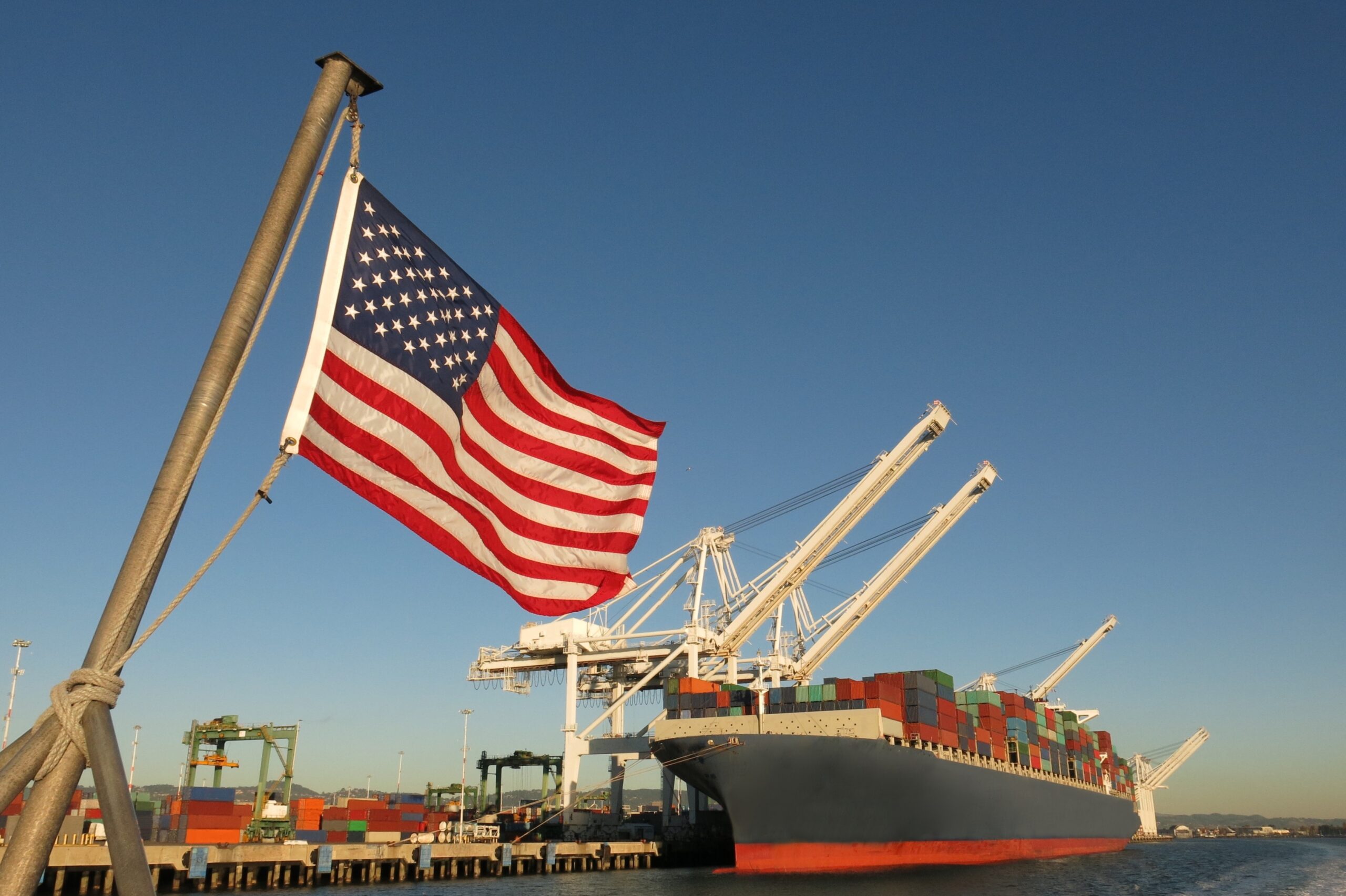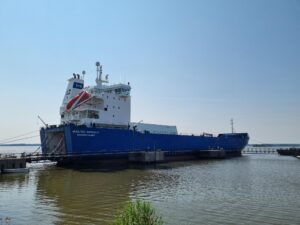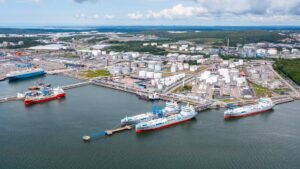The U.S. Department of Transportation’s Maritime Administration (MARAD) awarded nearly $12 million in grants to eight marine highway projects across the USA under the United States Marine Highway Program (USMHP).
The funding will improve the movement of goods along the country’s navigable waterways and expand existing waterborne freight services in Alaska, Illinois, Indiana, Louisiana, Texas, Washington, and Wisconsin, which will strengthen supply chains and ultimately cut costs for consumers.
“Our country has always relied on American waterways to get vital goods where they need to go,” said U.S. Transportation Secretary Pete Buttigieg, adding: “Today, we are delivering new funding for eight marine highway projects across the country that will strengthen our supply chains, improve our ports, and help keep goods affordable for American families.”
Of the nearly $12 million in awards being announced, $5.8 million supports projects within Historically Disadvantaged Communities.
United States Marine Highway grants can be used to purchase low-emission U.S.-manufactured equipment, such as container reach stackers and cranes, with the condition that all iron, steel, manufactured products, and construction materials are produced in the United States.
In addition, funds can be used to purchase intermodal equipment that can alleviate supply chain bottlenecks.
In Alaska, the Matanuska-Susitna Borough was awarded $944,804 for the acquisition of a 75-ton rough terrain crane for loading and unloading cargo, freight, fuel, equipment, and other goods at Port MacKenzie. The versatility of the crane will provide needed accommodations for handling heavy freight and cargo at the deep-draft dock, the barge dock, and the bow ramp.
In Illinois, the Kaskaskia Regional Port District was awarded $1,008,750 for the acquisition of eight shuttle cars. These are the final component needed to complete the infrastructure expansion at the Kaskaskia Regional Port District, which will handle 2.25 million tons of new coiled steel and move existing coiled steel located at the terminal to a new laydown yard.
The Ports of Indiana were also awarded $2,250,000 for the acquisition of a new crane for the Ports of Indiana-Mount Vernon. The crane more than doubles the port’s lift capacity from less than 60 tons to 120 tons and allows the Port to supply heavy lift transload between barge, rail, and truck.
In Louisiana, the Morgan City Harbor and Terminal District was awarded $3,320,000 for the procurement, delivery, and assembly of cargo transloading equipment, specifically a 220-ton crane and a 25-ton forklift. Procuring modern and efficient cargo transloading equipment will improve efficiency and safely mitigate congestion by providing benefits to time-savings, fuel efficiency, safety, and reducing carbon emission.
Furthermore, the Port of Beaumont Navigation District of Jefferson County in Texas was awarded $2,041,925 for the acquisition of two reach stackers, which will be used as the primary equipment for cargo movements associated with the Port of Beaumont Container on Barge Service from the Port of Beaumont to Port Houston. This project will reduce barriers for domestic producers to ship products abroad, decrease emissions associated with trucking products to Houston, and provide safety and maintenance benefits by reducing vehicle miles traveled.
In the state of Washington, the Port of Bellingham was awarded $1,021,747 for the purchase of a portable barge ramp for the Bellingham Shipping Terminal (BST) to support the movement of lumber, refrigerated and non-refrigerated containers, rolling stock, and household goods between the Port of Bellingham and Port of San Diego as part of the United States Marine Highway Route M-5. The new barge service reduces truck and rail shipments between BST and the Port of San Diego, improving environmental sustainability by using less energy and reducing air emissions per ton-mile of freight moved.
SeaTac Marine Services, LLC (STMS) was awarded $811,965 for the acquisition of a Tier 4 forklift for Alaska-bound cargo. The forklift is an upgrade to existing equipment and enables STMS to maximize its terminal capacity through efficiencies gained with modern low-emission equipment.
Finally, in Wisconsin, Lake Michigan Carferry, Inc. was awarded $600,000 to support a zero-emission/carbon capture feasibility analysis to convert the SS Badger from a coal-fired steamship to a zero-emission ferry vessel. The project will facilitate the safe, sustainable, and efficient transfer movement of three types of freight: traditional semi-trailers, oversize loads, and project cargo.



